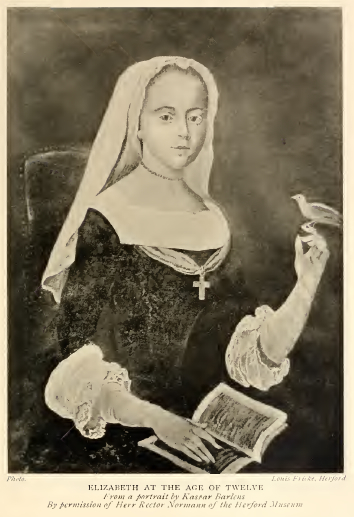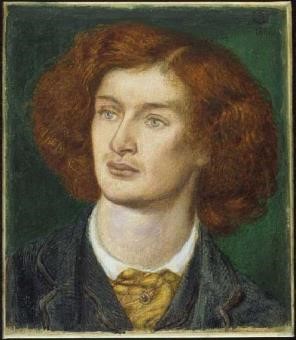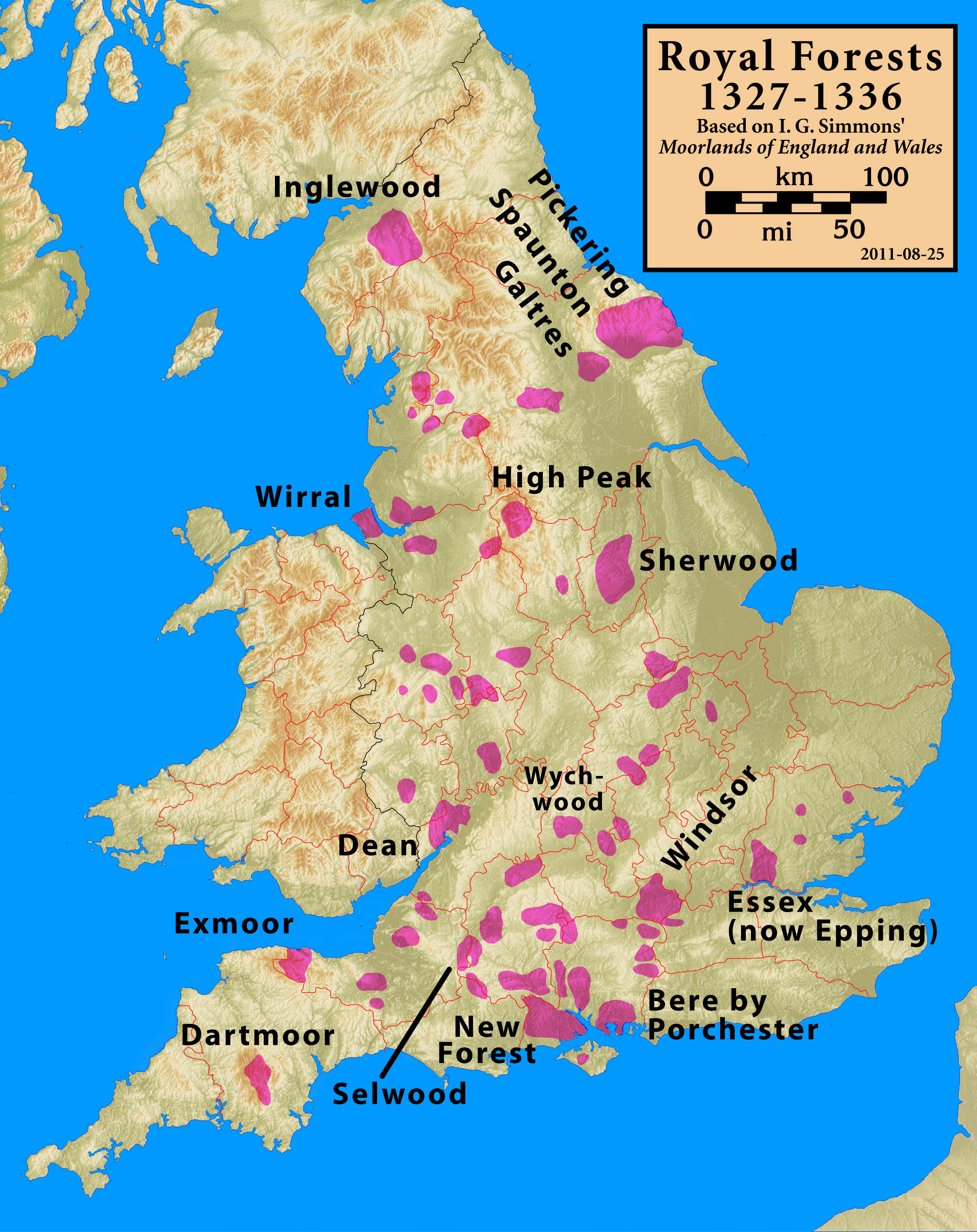|
Jessie Bedford
Jessie Bedford (1853–1918) was a British novelist who wrote about ten novels under the name of Elizabeth Godfrey. She wrote about the Stuarts, German history and a biography of the German philosopher Elisabeth of the Palatinate. Life Bedford was born in 1853 near Winchester in the village of Twyford. Her mother was Emma (born Poulden) who was the second wife of Revd James Gover Bedford who had children from his first marriage. Her early writing was for '' Temple Bar'' and '' Macmillan's Magazine'' in the early 1890s. In 1892 she took the of Elizabeth Godfrey to write a three volume novel titled ''Twixt Wood and Sea''. In 1895 she a book which was like one by Thomas Hardy when she published a "pleasant piece of work". It was called ''Cornish Diamonds'' in which a contemporary heroine has to choose between following her talents or her love. Her next book was a "musical novel" titled ''Poor Human Nature'' in 1898 which concerned opera singers in a German town. In the following y ... [...More Info...] [...Related Items...] OR: [Wikipedia] [Google] [Baidu] |
Elisabeth Of The Palatinate
Elisabeth of the Palatinate (26 December 1618 – 11 February 1680), also known as Elisabeth of Bohemia, Princess Elisabeth of the Palatinate, or Princess-Abbess of Herford Abbey, was the eldest daughter of Frederick V, Elector Palatine (who was briefly King of Bohemia), and Elizabeth Stuart. Elisabeth of the Palatinate was a philosopher best known for her correspondence with René Descartes. She was critical of Descartes' dualistic metaphysics and her work anticipated the metaphysical concerns of later philosophers. Life Elisabeth Simmern van Pallandt was born on December 26, 1618, in Heidelberg. She was the third of thirteen children and eldest daughter of Frederick V, Elector Palatine, and Elizabeth Stuart, daughter of James VI of Scotland and I of England and sister of Charles I. Much of Elisabeth's early life outside of her familial relations is unknown. After a short, unsuccessful reign in Bohemia, Elisabeth's parents were forced into exile in the Netherlands in 1620. ... [...More Info...] [...Related Items...] OR: [Wikipedia] [Google] [Baidu] |
Temple Bar (magazine)
''Temple Bar'' was a literary periodical of the mid and late 19th and very early 20th centuries (1860–1906). The complete title was ''Temple Bar – A London Magazine for Town and Country Readers''. It was initially edited by George Augustus Sala, and Arthur Ransome was the final editor before it folded, while he developed his literary career. It was also edited by Mary Elizabeth Braddon. History ''Temple Bar'' was founded a year after the first publication of William Thackeray's '' The Cornhill Magazine'', by one of Charles Dickens' followers, Sala, who promised his readers that the periodical would be "full of solid yet entertaining matter, that shall be interesting to Englishmen and Englishwomen…and that Filia-familias may read with as much gratification as Pater or Mater-familias", appealing to a solid, literate middle-class. A rather congratulary review of the arrival of the impending publication appeared in the ''New York Times'' in October 1860 saying that it promised ... [...More Info...] [...Related Items...] OR: [Wikipedia] [Google] [Baidu] |
Macmillan's Magazine
''Macmillan's Magazine'' was a monthly British magazine from 1859 to 1907 published by Alexander Macmillan. The magazine was a literary periodical that published fiction and non-fiction works from primarily British authors. Thomas Hughes had convinced Macmillan to found the magazine. The first editor was David Masson. In 1868, David Masson resigned as editor of ''Macmillan's Magazine'' and left London to become Professor of English Literature at Edinburgh University. Alexander Macmillan appointed George Grove, who remained in this post for 15 years, becoming also a general literary adviser to the publisher. In its first decade of existence, Frederick Denison Maurice was a prolific contributor. References Further reading *) External linksComplete issues of Macmillan's Magazineat Internet Archive The Internet Archive is an American digital library with the stated mission of "universal access to all knowledge". It provides free public access to collections of digitized ... [...More Info...] [...Related Items...] OR: [Wikipedia] [Google] [Baidu] |
Nom-de-plume
A pen name, also called a ''nom de plume'' or a literary double, is a pseudonym (or, in some cases, a variant form of a real name) adopted by an author and printed on the title page or by-line of their works in place of their real name. A pen name may be used to make the author's name more distinctive, to disguise the author's gender, to distance the author from their other works, to protect the author from retribution for their writings, to merge multiple persons into a single identifiable author, or for any of a number of reasons related to the marketing or aesthetic presentation of the work. The author's real identity may be known only to the publisher or may become common knowledge. Etymology The French-language phrase is occasionally still seen as a synonym for the English term "pen name", which is a "back-translation" and originated in England rather than France. H. W. Fowler and F. G. Fowler, in ''The King's English'' state that the term ''nom de plume'' evolve ... [...More Info...] [...Related Items...] OR: [Wikipedia] [Google] [Baidu] |
Three Volume Novel
The three-volume novel (sometimes three-decker or triple decker) was a standard form of publishing for British fiction during the nineteenth century. It was a significant stage in the development of the modern novel as a form of popular literature in Western culture. History An 1885 cartoon from the magazine ''Punch'', mocking the clichéd language attributed to three-volume novels Three-volume novels began to be produced by the Edinburgh-based publisher Archibald Constable in the early 19th century. Constable was one of the most significant publishers of the 1820s and made a success of publishing expensive, three-volume editions of the works of Walter Scott; the first was Scott's historical novel ''Kenilworth'', published in 1821, at what became the standard price for the next seventy years. rchibald Constable published Ivanhoe in 3 volumes in 1820, but also, T. Egerton had been publishing the works of Jane Austen in 3 volumes 10 years earlier, Sense and Sensibility in 181 ... [...More Info...] [...Related Items...] OR: [Wikipedia] [Google] [Baidu] |
Algernon Charles Swinburne
Algernon Charles Swinburne (5 April 1837 – 10 April 1909) was an English poet, playwright, novelist, and critic. He wrote several novels and collections of poetry such as '' Poems and Ballads'', and contributed to the famous Eleventh Edition of the ''Encyclopædia Britannica''. Swinburne wrote about many taboo topics, such as lesbianism, sado-masochism, and anti-theism. His poems have many common motifs, such as the ocean, time, and death. Several historical people are featured in his poems, such as Sappho ("Sapphics"), Anactoria ("Anactoria"), and Catullus ("To Catullus"). Biography Swinburne was born at 7 Chester Street, Grosvenor Place, London, on 5 April 1837. He was the eldest of six children born to Captain (later Admiral) Charles Henry Swinburne (1797–1877) and Lady Jane Henrietta, daughter of the 3rd Earl of Ashburnham, a wealthy Northumbrian family. He grew up at East Dene in Bonchurch on the Isle of Wight. The Swinburnes also had a London home at Whiteha ... [...More Info...] [...Related Items...] OR: [Wikipedia] [Google] [Baidu] |
Theodore Watts-Dunton
Theodore Watts-Dunton (12 October 1832 – 6 June 1914), from St Ives, Huntingdonshire, was an English poetry critic with major periodicals, and himself a poet. He is remembered particularly as the friend and minder of Algernon Charles Swinburne, whom he rescued from alcoholism and drug use and persuaded to continue writing. Birth and education Walter Theodore Watts was born at St Ives, in what was then Huntingdonshire. He added his mother's name Dunton to his surname in 1897. He was originally educated as a naturalist, and saw much of the East Anglian Gypsies, of whose superstitions and folklore he made careful study. Abandoning natural history for the law, he qualified as a solicitor and went to London, where he practised for some years, giving his spare time to his chosen pursuit of literature. One of his clients was Swinburne, whom he befriended in 1872. Literary contributions Watts-Dunton contributed regularly to the '' Examiner'' from 1874 and to the '' Athenaeum'' f ... [...More Info...] [...Related Items...] OR: [Wikipedia] [Google] [Baidu] |
Lucas Malet
Lucas Malet was the pseudonym of Mary St Leger Kingsley (4 June 1852 — 27 October 1931), a Victorian novelist. Of her novels, ''The Wages of Sin'' (1891) and ''The History of Sir Richard Calmady'' (1901) were especially popular. Malet scholar Talia Schaffer notes that she was "widely regarded as one of the premier writers of fiction in the English-speaking world" at the height of her career, but her reputation declined by the end of her life and today she is rarely read or studied. At the height of her popularity she was "compared favorably to Thomas Hardy, and Henry James, with sales rivaling Rudyard Kipling." Malet's fin de siecle novels offer "detailed, sensitive investigations of the psychology of masochism, perverse desires, unconventional gender roles, and the body." Early years She was born at the rectory in Eversley, Hampshire, the younger daughter of Reverend Charles Kingsley (author of ''The Water Babies'') and his wife Frances Eliza Grenfell, the third of the couple ... [...More Info...] [...Related Items...] OR: [Wikipedia] [Google] [Baidu] |
Heidelberg
Heidelberg (; Palatine German language, Palatine German: ''Heidlberg'') is a city in the States of Germany, German state of Baden-Württemberg, situated on the river Neckar in south-west Germany. As of the 2016 census, its population was 159,914, of which roughly a quarter consisted of students. Located about south of Frankfurt, Heidelberg is the List of cities in Baden-Württemberg by population, fifth-largest city in Baden-Württemberg. Heidelberg is part of the densely populated Rhine-Neckar, Rhine-Neckar Metropolitan Region. Heidelberg University, founded in 1386, is Germany's oldest and one of Europe's most reputable universities. Heidelberg is a Science, scientific hub in Germany and home to several internationally renowned #Research, research facilities adjacent to its university, including the European Molecular Biology Laboratory and four Max Planck Society, Max Planck Institutes. The city has also been a hub for the arts, especially literature, throughout the centurie ... [...More Info...] [...Related Items...] OR: [Wikipedia] [Google] [Baidu] |
René Descartes
René Descartes ( or ; ; Latinized: Renatus Cartesius; 31 March 1596 – 11 February 1650) was a French philosopher, scientist, and mathematician, widely considered a seminal figure in the emergence of modern philosophy and science. Mathematics was central to his method of inquiry, and he connected the previously separate fields of geometry and algebra into analytic geometry. Descartes spent much of his working life in the Dutch Republic, initially serving the Dutch States Army, later becoming a central intellectual of the Dutch Golden Age. Although he served a Protestant state and was later counted as a deist by critics, Descartes considered himself a devout Catholic. Many elements of Descartes' philosophy have precedents in late Aristotelianism, the revived Stoicism of the 16th century, or in earlier philosophers like Augustine. In his natural philosophy, he differed from the schools on two major points: first, he rejected the splitting of corporeal substance i ... [...More Info...] [...Related Items...] OR: [Wikipedia] [Google] [Baidu] |
New Forest
The New Forest is one of the largest remaining tracts of unenclosed pasture land, heathland and forest in Southern England, covering southwest Hampshire and southeast Wiltshire. It was proclaimed a royal forest by William the Conqueror, featuring in the Domesday Book. It is the home of the New Forest Commoners, whose ancient rights of common pasture are still recognised and exercised, enforced by official verderers and agisters. In the 18th century, the New Forest became a source of timber for the Royal Navy. It remains a habitat for many rare birds and mammals. It is a biological and geological Site of Special Scientific Interest. Several areas are Geological Conservation Review and Nature Conservation Review sites. It is a Special Area of Conservation, a Ramsar site and a Special Protection Area. Copythorne Common is managed by the Hampshire and Isle of Wight Wildlife Trust, Kingston Great Common is a national nature reserve (United Kingdom), national nature ... [...More Info...] [...Related Items...] OR: [Wikipedia] [Google] [Baidu] |
1853 Births
Events January–March * January 6 – Florida Governor Thomas Brown signs legislation that provides public support for the new East Florida Seminary, leading to the establishment of the University of Florida. * January 8 – Taiping Rebellion: Zeng Guofan is ordered to assist the governor of Hunan in organising a militia force to search for local bandits. * January 12 – Taiping Rebellion: The Taiping army occupies Wuchang. * January 19 – Giuseppe Verdi's opera '' Il Trovatore'' premieres in performance at Teatro Apollo in Rome. * February 10 – Taiping Rebellion: Taiping forces assemble at Hanyang, Hankou, and Wuchang, for the march on Nanjing. * February 12 – The city of Puerto Montt is founded in the Reloncaví Sound, Chile. * February 22 – Washington University in St. Louis is founded as Eliot Seminary. * March – The clothing company Levi Strauss & Co. is founded in the United States. * March 4 – Inauguration of Franklin Pierce as 14t ... [...More Info...] [...Related Items...] OR: [Wikipedia] [Google] [Baidu] |




.png)

